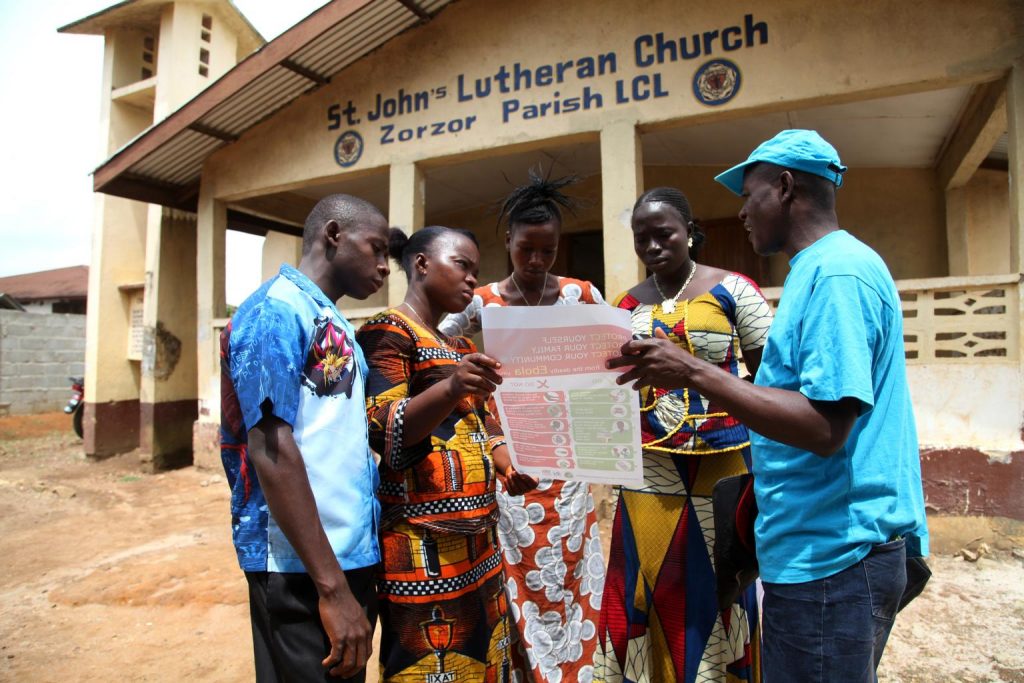The International Rescue Committee (IRC) based in Monrovia, Liberia, during the 2014–16 Ebola outbreak attempted to look at the emergency health response through three different lenses: medical; infection prevention and control; and psychosocial. The term ‘psychosocial’ means the interrelation of the mind with social factors, all underpinned by the critical influence of culture.
Many emergency health interventions integrate different components alongside the provision of medical care, such as infection prevention and control (IPC) and water, sanitation and hygiene (WASH). It is less common, however, to see psychosocial approaches given such equal value within an emergency response. This SSHAP Case Study details how the IRC team in Liberia used a psychosocial lens to gain a different perspective and open ways forward to better respond to the Ebola epidemic.



